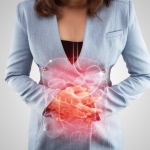4 Brain Boosting Properties of Resveratrol
What do pistachios, peanuts, blueberries, and grapes have in common? In addition to providing a tasty snack, they are all sources of resveratrol, a naturally occurring substance found in certain plants that offers a number of health benefits to the brain!
Resveratrol is a type of phytoalexin, a substance produced by plant tissues that promotes disease resistance. Medical researchers are still exploring the mechanisms by which it works but it has clearly proven its impact on reducing inflammation in the central nervous system (inflammation of this nature is a major contributor to chronic pain, depression, and neurodegenerative diseases).
Sources of resveratrol
A well-balanced diet that includes lots of fruits, vegetables, and nuts is a wonderful way to obtain Resveratrol. Other food sources include mulberries, raspberries, red wine, pomegranates, dark chocolate, and soy beans.
Bioavailability
Successful in vivo studies (involving animals or humans) are limited but show promise. One reason for their limited success is that Resveratrol has low bioavailability. Merriam-Webster defines bioavailability as “the degree and rate at which a substance is absorbed into a living system or is made available at the site of physiological activity.” In other words, before our bodies are able to reap its benefits, Resveratrol is rapidly absorbed and eliminated. Researchers continue to look for ways to enhance its bioavailability through dosage concentrations and combinations with other compounds. For example, just as piperine can improve the bioavailability of curcumin, it may also improve the bioavailability of resveratrol. A 2020 study published in The Egyptian Rheumatologist concluded that “piperine administration concurrently with resveratrol potentiated the anti-inflammatory efficacy of resveratrol in arthritic-induced rats which could be attributed to the bio-enhancing activity of piperine”.
Questions? Give Us a Call!
Possible Clinical Applications of Resveratrol
- It has demonstrated neuroprotective qualities post-stroke, post-Traumatic Brain Injury (TBI), and/or post-spinal cord injury. A 2021 review published in Neurochemistry International, which looked at both in vivo and in vitro studies, confirmed that Resveratrol “can induce a neuroprotective state when administered acutely or prior to experimental injury to the CNS.”
- It can potentially lower a person’s risk of opioid dependency. A 2020 study published in World Academy of Sciences Journal found that “RES can potentiate the antinociceptive effects of morphine and reduces morphine tendency and reinstatement.” In other words, this study suggests that it’s possible that Resveratrol, when taken with morphine, can prevent the development of hyperalgesia (increased sensitization to pain) – a condition that often leads to opioid dependency. Furthermore, Resveratrol acts without compromising the morphine’s effectiveness.
- It can improve age-related mood and memory function. Resveratrol’s anti-aging and anti-inflammatory properties seem to protect cells in the hippocampal region of the brain from damage. This region of the brain converts short-term memory to long-term memory, and is part of the limbic system, which regulates emotion. A study published in Scientific Reports showed that middle aged, Resveratrol-treated rats had “improved learning, memory and mood function” in older age than their “vehicle” (a substance usually without therapeutic action) or control-treated counterparts.
- It reduces amyloid plaque formation. Amyloid plaques present as a sticky buildup that accumulates outside nerve cells or neurons, and they have been linked to Alzheimer’s disease. A 2022 study published in Free Radical Biology and Medicine, found “strong evidence for resveratrol’s neuroprotective and anti-plaque capabilities in viral-induced AD, which merits its further exploration as an AD preventive and therapeutic candidate.”
Supplementing with Resveratrol
Resveratrol supplements are available in pure form or combined with other compounds. Dosages are typically somewhere between 5mgs and 5gms, depending on the individual’s medical condition.
* If you are considering taking a supplement, make sure to talk with your physician about possible interactions with other medicines.
In sum, Resveratrol is a powerful anti-oxidant with a demonstrated potential to nurture and even heal the brain. With many delightful sources available in food, supplementing with Resveratrol can ensure that our bodies get even more of this wonderful gift from nature!
We are here for you, and we want to help.
Our goal is to return you to optimal health as soon as possible. To schedule an appointment please call: 703-532-4892 x2
Additional References:
Bioavailability (n.d.) Merriam-Webster.com. Retrieved from //www.merriam-webster.com/dictionary/bioavailability.
Meng T, Xiao D, Muhammed A, Deng J, Chen L, He J. Anti-Inflammatory Action and Mechanisms of Resveratrol. Molecules. 2021 Jan 5;26(1):229. doi: 10.3390/molecules26010229. PMID: 33466247; PMCID: PMC7796143.
Jardim FR, de Rossi FT, Nascimento MX, da Silva Barros RG, Borges PA, Prescilio IC, de Oliveira MR. Resveratrol and Brain Mitochondria: a Review. Mol Neurobiol. 2018 Mar;55(3):2085-2101. doi: 10.1007/s12035-017-0448-z. Epub 2017 Mar 10. PMID: 28283884.
Bailey HH, Johnson JJ, Lozar T, Scarlett CO, Wollmer BW, Kim K, Havinghurst T, Ahmad N. A randomized, double-blind, dose-ranging, pilot trial of piperine with resveratrol on the effects on serum levels of resveratrol. Eur J Cancer Prev. 2021 May 1;30(3):285-290. doi: 10.1097/CEJ.0000000000000621. PMID: 32868637; PMCID: PMC7910313.











Leave a Reply
Want to join the discussion?Feel free to contribute!